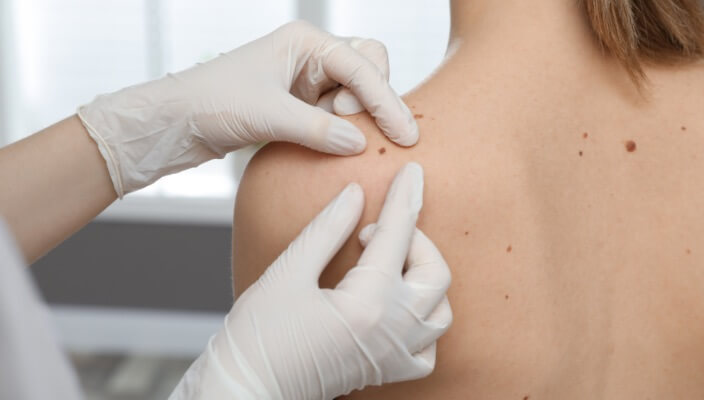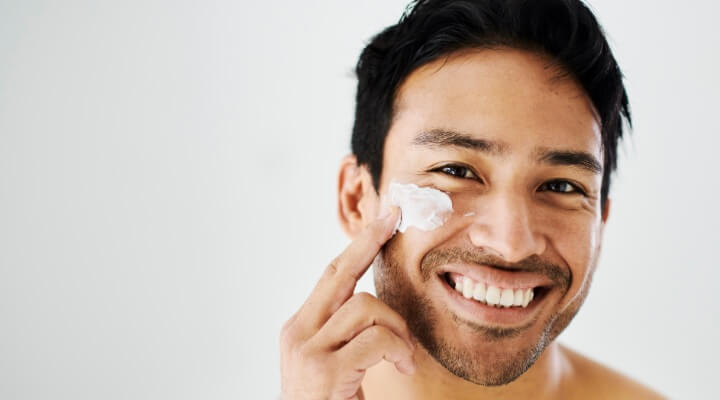Best Dermatologists: Their Skincare Best Practices
The Perfect Skincare Routine
 The “perfect skincare routine” is a trending topic online and in the wellness community. With so many celebrity-endorsed products and video tutorials to sift through, it’s easy to get swept up in their advice. However, these products and practices do not always line up with the recommendations from licensed skincare experts, AKA dermatologists.
The “perfect skincare routine” is a trending topic online and in the wellness community. With so many celebrity-endorsed products and video tutorials to sift through, it’s easy to get swept up in their advice. However, these products and practices do not always line up with the recommendations from licensed skincare experts, AKA dermatologists.The best dermatologists can provide science-backed, realistic recommendations to maintain optimal skin health through a solid routine.
Recommended Skincare from the Best Dermatologists
So, what do the best dermatologists recommend for general skincare best practices? From building a routine to selecting the right products, they can provide the best insights into your skin. See some simple skincare tips from the experts below:
- Schedule regular Total Body Skin Exams
- Wear sunscreen
- Block the sun's rays
- Don’t pverdo products
- Cleanse your face twice a day
- Moisturize regularly
- Pick a trusted dermatologist
“Sunscreen is important in all skin tones and all skin types. Anyone can get skin cancer and that’s why it’s important to wear sunscreen SPF 30 or higher. Particularly patients concerned with discoloration such as patients with darker skin types or even patients that are dealing with sun spots on their skin. Sunscreen is going to be your first choice to prevent those dark spots from staying dark and developing new dark spots.” - Dr. Olabola Awosika, MD
Schedule Total Body Skin Exams
Even more importantly, it’s crucial to get regular total body skin exams from a trusted dermatologist. Allowing a professional to run a complete review of your skin means you never miss a potential health concern.
Wear Sunscreen
Apply sunscreen every morning (year-round, not just in the summer) on all exposed skin before heading out for the day — and make it a habit. Opt for SPF 30 or higher and reapply after swimming or sweating – and if you’re outside all day, reapply every two hours. The most economical and effective option is to select a dermatologist-recommended year-round sun protectant with moisturizer so you can kill two birds with one stone in your morning routine.
Block the Sun's Rays
Featured Sun Protectants
Check your local office for current stock!
Check your local office for current stock!
Don’t Overdo Products
In a world of 10-step skincare routines, you wouldn’t expect someone to say “less is more” when it comes to applying products. However, the best dermatologists do not recommend a complex routine with dozens of over-the-counter products. For normal daily cleansing and care, the most important thing is to avoid certain ingredients. Shop for your skin type and always look at the label. If you’re not sure about your skin type, ask your dermatologist and they can provide insights into what ingredients work best with your skin – and which to stay away from.
If you do know your skin type, follow some general best practices when shopping for cleansers. People with dry or sensitive skin should always use mild products. Avoid fragrances and alcohols to prevent irritation and further dryness. If you lean toward an oily skin type, choose oil-free cleaners that are non-comedogenic so you don’t clog pores. Some green flags to look for on your labels? Vitamin E, vitamin C, vitamin A, and antioxidants. They promote healthy skin and help prevent sun damage.
Keep it Clean
Create a simple cleansing routine for the morning and before bed. This cleans out pores and helps prevent breakouts. If you sweat or workout daily, do not skip this step before going to sleep. See the cleanser best practices above and always use lukewarm water on your face. For added benefits, use a mild exfoliator 2-3 times a week to stimulate collagen production and remove dead skin. Some ingredients to look for when shopping for an effective exfoliator include Glycolic Acid, Salicylic Acid, and Lactic Acid. It’s a good idea to touch base with your dermatologist before selecting your exfoliator so they can help find the right option for your skin’s needs.
Moisturize After
Moisturizing can make a massive difference when it comes to the general appearance and overall health of your skin. One of the most important tips? Stay hydrated and drink water throughout the day so your skin stays hydrated as well. If you’re looking for a go-to moisturizer, select one with hyaluronic acid to help lock-in and retain your skin’s natural moisture.
Why Choose A Board-Certified Dermatologist?
“You have to think about the fact that your skin has a very important job to provide a barrier for your body. To keep not only the bad stuff out, but keep the good stuff like water and moisture in to keep us healthy. . . we want to make sure we’re [using] barrier creams to give back what your skin is missing from the outside.” - Blake Troiani, MD
Pick the Best, Most Trusted Dermatologist
Ultimately, the best course of action to get the most personalized and relevant recommendations for your unique skin is to work with a great dermatologist. They can run a complete exam and provide the peace of mind that the products you’re using on your skin will work optimally. Finding the best dermatologists in your area is key to getting great, catered care. Pinnacle Dermatology has industry-leading doctors who can provide the personalized care for annual exams, specialized treatment, and any skin-related concern. See our local dermatologist locations to find the great doctors near you in our network.
Never Ignore Your Skin Health
It’s easy to let life get in the way of scheduling annual exams and checkups at the dermatologist. However, it’s crucial to get a full exam every year to make sure you don’t have any spots of concern. As you age, you’ll likely notice some new marks or areas on your skin. While most are normal, some can be cancerous or signs of other health problems. A dermatologist can identify which spots need medical attention, and also provide support to minimize the presence of benign spots.
Find the Best Dermatologists Near You with Pinnacle Dermatology
If you’re ready to schedule an appointment for your total body skin exam and talk to your doctor about skincare best practices, contact Pinnacle Dermatology today. With offices all around the United States, you can get the best care in your region with our network of top dermatologists.
Sunscreen Recommendations for All Skin Types
Featured Blogs

- Skin Cancer
- General Dermatology
- Skin Exams
Your skin is your largest organ and its first line of defense. Learn more about why a skin exam should be a part of your wellness routine.
Read More
- Skin Cancer
- Sun Safety
The sun's ultraviolet (UV) radiation poses a significant risk. Discover ways to protect you and your loved ones from the sun and keep your skin healthy all year long.
Read More
- General Dermatology
- Sun Safety
- Chronic Skin Conditions
Debunking myths about actinic keratosis: Learn the truth about the causes, treatments, and prevention of this common sun-related skin condition.
Read More


